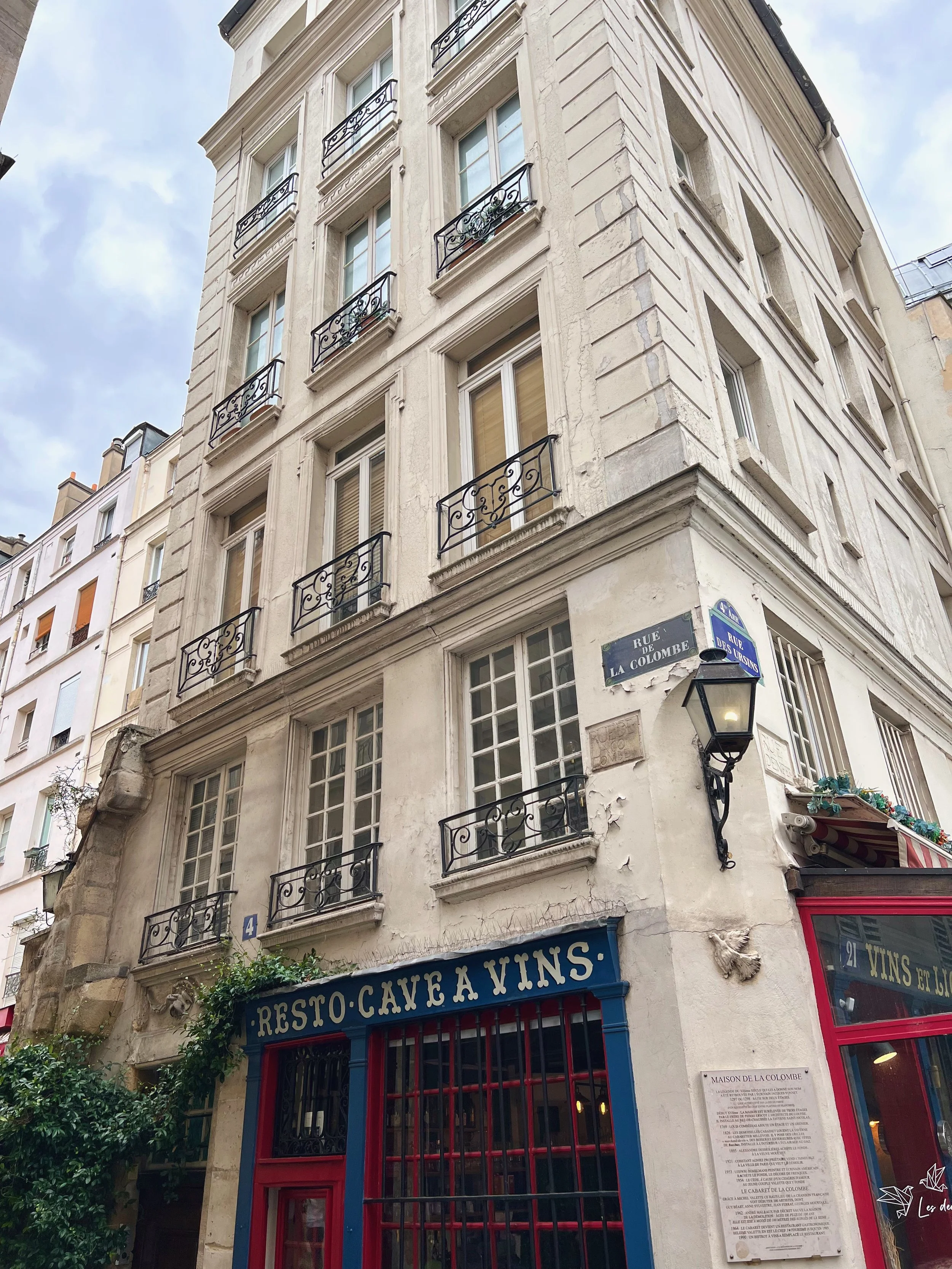First view of the Eiffel Tower!
Bienvenue a Paris, the city of lights, love, and lukewarm water, or “carafe d’eau,” as those of us looking for free water at some of Paris’ finest establishments call it. As we were welcomed with 95℉ heat, we quickly realized free water is a rarity we Americans take for granted. In my search for water, I have encountered the many, many differences between the French and American cultures that are painfully apparent to foreign visitors to Paris.
Aside from overpriced bottled water, one of the first aspects of Paris that jumped out at me was the cafes, for two reasons: their sheer number and their configuration. An intricate, beautifully designed labyrinth of cafes provides an almost perfect image of Paris to the unfamiliar since it seems that there are more cafes than people at times. Uniquely French, they offer coffee, pastries, and quick meals for Parisians and tourists alike seeking refuge from the busy streets of Paris. Perhaps what is most unique about these cafes is their emphasis on outdoor seating, most of which with street-facing chairs. While easy to overlook, it is very obvious that at a table of two, rather than being sat across from one another, the chairs are arranged next to each other. While a small detail, this reveals a unique aspect of the French culture that we lack in America, focusing on the other.
“Looking at people go by has always been the Parisians’ favourite pastime; no wonder they’re called gawkers.”
As Americans, we are taught that staring and/or commenting on others is rude and not to be done in public, however, in Paris it seems tolerated and even encouraged within these cafes. While I could certainly appreciate the activity of people watching coming from a Mexican background, my American background came into conflict with this aspect of French society. To simply sip your coffee with a friend at a cafe and comment on those passing by is a leisure activity for the French, their affinity for the simple activities and pleasures of life. Not only are people watching something you notice in cafes, but in restaurants, museums, and the metro, where wandering eyes are the status quo in Paris. While this is a welcome change from America and its 51st state (London), there is certainly a level of culture shock that comes with understanding the way the French perceive others. The greater Anglo-Saxon culture places a huge emphasis on the self, whether it be the way you speak, your demeanor in public, or your professional goals. We as Americans are taught to constantly be aware of how we present ourselves in public, manifesting in a surplus of self-awareness to the point of self-censorship. This lack of self-censorship is exactly what the French culture celebrates and what attracts people from all over the world to Paris. From the cigarettes, public displays of affection, and heated arguments, the Parisians have allowed themselves a sort of emotional freedom that much of the West has seemed to have lost along the way. This style of living is liberating in the sense that Parisians seem unbothered about the facets of life that are central to American society. Unbothered by tardiness. Unbothered by distance. Unbothered by stares. All of these amount to aspects of our society creates significant institutions back in America, yet to the French are nothing but distractions to enjoying the minutiae of life and the beauty that surrounds them. This brought me to perhaps my favorite new term, activity, and state of being: The Flâneur.
“It’s an immense pleasure to take up residence in multiplicity, in whatever is seething, moving, evanescent and infinite: you’re not at home, but you feel at home everywhere; you see everyone, you’re at the centre of everything yet you remain hidden from everybody.”
This aspect of French society has been perhaps the most beautiful part of experiencing Paris thus far and has truly changed my perspective on how I occupy my time throughout the day. Despite growing up and currently living in the relatively relaxed, laid-back Southern California culture, there has always been a certain pressure in terms of how I spend my time. This has become even more relevant entering a competitive degree program at a prestigious university, where it seems that even my recreational time should somehow contribute to my personal or professional goals. However, the beauty of "flâneuring" is the emphasis on simply walking to walk, seeing to see, and existing to exist. While this may seem an oversimplification, to flâneur is to let your surroundings guide you and take the backseat and enjoy the world that passes you. Practicing this art in Paris has allowed me to enjoy this city on a deeper level than I expected, opening my eyes to the little aspects of their city that I wouldn't have seen otherwise. Children playing tag in the park, families gleefully encountering massive stuffed teddy bears that seemed to be interspersed throughout Paris, and the generosity extended towards street performers are just a few of the pleasures I have encountered while flâneuring in this beautiful city.
“Americans are particularly ill-suited to be flâneurs. They’re good at following books outlining architectural tours of Montparnasse or at visiting scenic spots outside Paris.”
Despite the above quote about Americans, I truly hope to implement flâneuring into my regular lifestyle, not just when traveling, but simply exploring the streets of San Diego back home or Los Angeles during the school year. To flâneur is truly one of the most rewarding yet simple activities to partake in alone, with friends, or alongside strangers. And for that, to flâneur is truly to be a part of Paris no matter where you may be. With all that being said, flâneur away!






